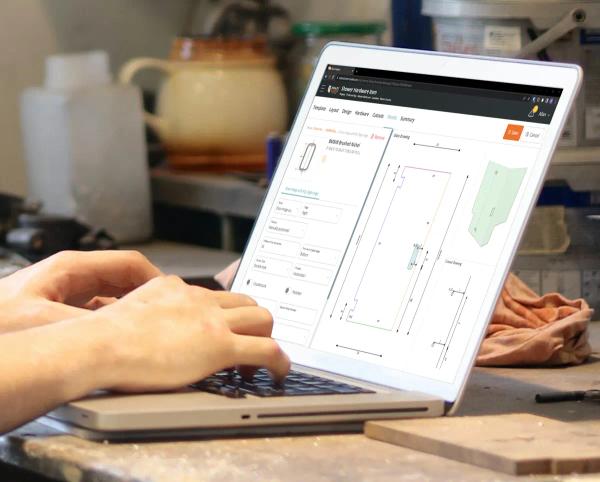Technology and employee privacy: what glazing businesses need to know
29 September 2018
Technology and employee privacy: what glazing businesses need to know
With an increasing emphasis on workplace productivity and the emerging technologies able to measure it, the impact on employee privacy is becoming a hot topic of conversation. While some degree of monitoring is to be expected — internet usage for example — new tracking technology takes this to a whole new level, raising some potential ethical concerns worth considering.
Just for fun, let's look at what big businesses are doing in regards to monitoring their employees and improving productivity...
- Amazon employees are tracked within their warehouse using GPS tracking devices and they have recently patented a wearable tracking device that could track employee's movements and notify them via vibrations when they make a mistake.
- Gensler, in New York, have motion sensor tracking devices installed in the light fixtures which record information about employee movement and behaviors.
- Hitachi have a sensor in employee name badges with a microphone to track how employees interact with each other.
- At the really extreme end is NewFusion — a Belgian marketing company — who offer their employees the option to implant a microchip in their hand, replacing the traditional employee swipe card.
Whilst having microchips surgically implanted into our bodies isn't the norm yet, the fact that some companies are heading down this route raises important ethical questions about what employers can and should track when it comes to their employees. This is also the case for employee monitoring in small businesses — what is acceptable and what isn't? Some forms of monitoring, such as accessing an employee's work emails or recording business phone calls, are established practices. Others, like GPS monitoring on vehicles or smart phones, are new to small businesses and may cause unease among their employees.
Big data, not Big Brother
There's nothing inherently wrong with collecting data to improve your business productivity and make sure your employees are carrying out their duties. Monitoring employees is not a novel concept, however it is important to be transparent about what you're monitoring in areas where employees would have a reasonable expectation of privacy — most glazing employees wouldn't expect their boss to go through their purse or their wallet, for example.
Employees generally don't have an expectation of privacy when it comes to their work computer so employers have quite a lot of room to monitor activity in this area. Some examples of computer monitoring include:
- Productivity monitoring software that measures keystrokes per hour or time away from the computer
- Email monitoring of any emails sent to or from a company email address
- Website tracking and blocking certain URLs
Call monitoring can be a useful tool to find ways to improve customer service so long as you're up front about doing it. It can be particularly useful for sales training as your sales reps can play back unsuccessful calls and think of better ways to approach the conversation next time around. Business calls can also be monitored but (in the US) personal calls cannot, even if that call is made from a work phone.
What about when they're off the clock?
Ethically, things get complicated when employers start monitoring their employees' out-of-work interactions such as what they post on social media. Whilst it's one thing to review public content (nothing is really hidden on the internet after all), trying to access content that your employees haven't made public is where things get sticky. Many states have introduced legislation banning employers from asking employees and candidates for passwords to their social media accounts so they could review them. Even if this is still legal where you are, it's an ethical quagmire you don't want to get into and could do some serious word-of-mouth damage to your business' reputation.
When you're considering tracking out-of-work activities, think carefully about what you'll be gaining from it. Why are you collecting that specific data? Monitoring for the sake of monitoring is a slippery slope, it's important to have a set of questions that tracking data will provide answers for, ideally relating to things like productivity, cost savings, employee engagement and so on.
Things to consider...
New methods of measuring productivity are constantly in development and it can be hard to figure out what's appropriate for your business and your employees. Regardless of what you use, you should consider reviewing your privacy policy and ensuring your employees have read and signed it. If you don't have a privacy policy, write one! It's important to both set clear expectations for your employees and to protect your business.
Related Blogs
26 January 2024
Why Fabricators need a Glass E-commerce Platform
Going digital isn't just a tech trend—it's a game-changer and could be for your business as well. Let's dive into why introducing an E-commerce portal is a smart move for your glass fabrication business by considering the pros & cons and how Smart Glazier Software can help navigate you into the digital age.
28 October 2023
Smart Glazier Software set to shine at GlassBuild 2023
2023 has been a huge year for us here at Smart Glazier Software, and we're excited to head into GlassBuild America this year and take part in the most significant event in the Glass Industry across the Western Hemisphere.
05 October 2023
Our Transformation: Becoming Smart Glazier Software
On August 1, 2023, a significant transformation took place as Smart-Builder evolved into Smart Glazier Software. Dive into our blog to discover the motivations behind this rebrand and the implications it holds for our organization.



